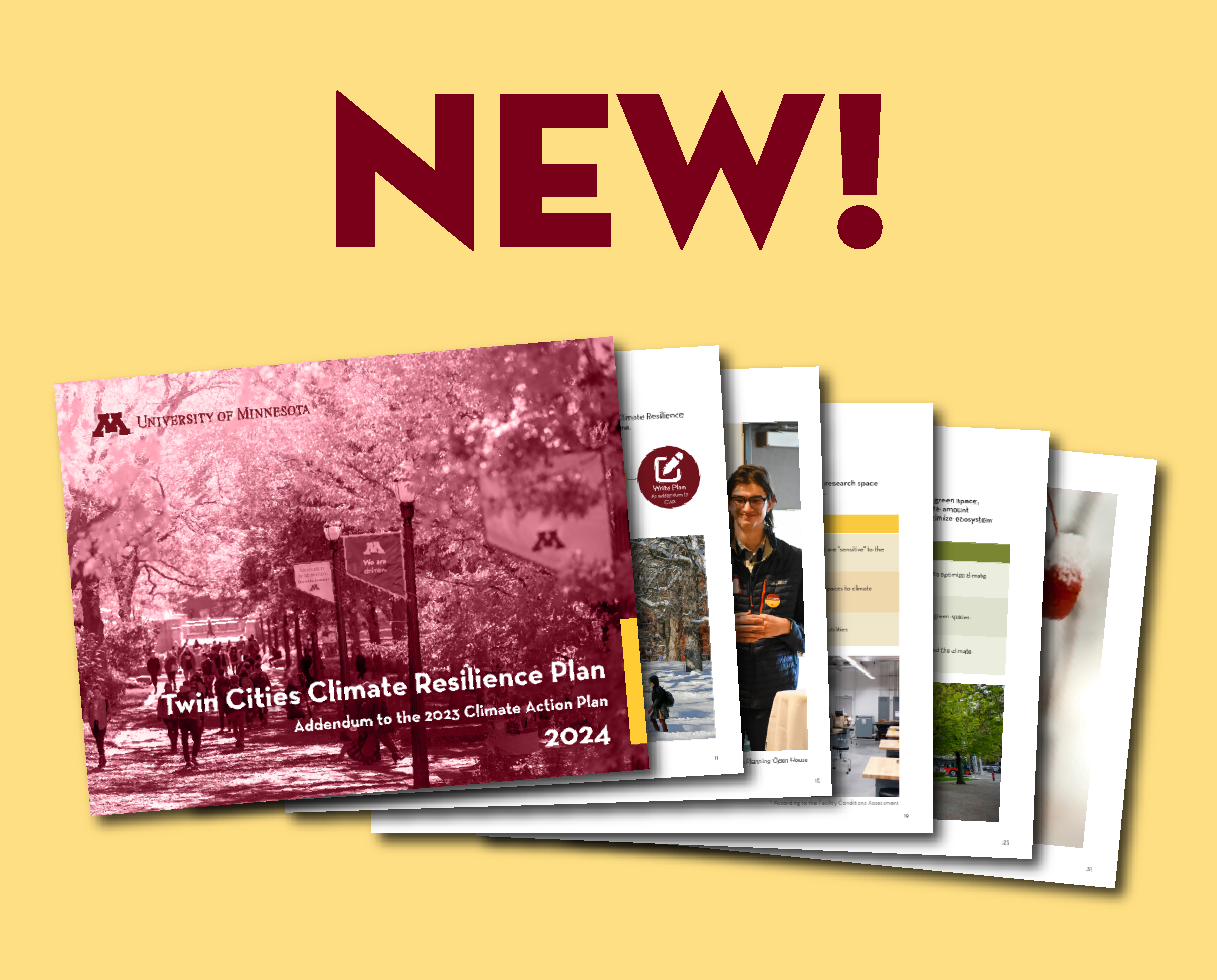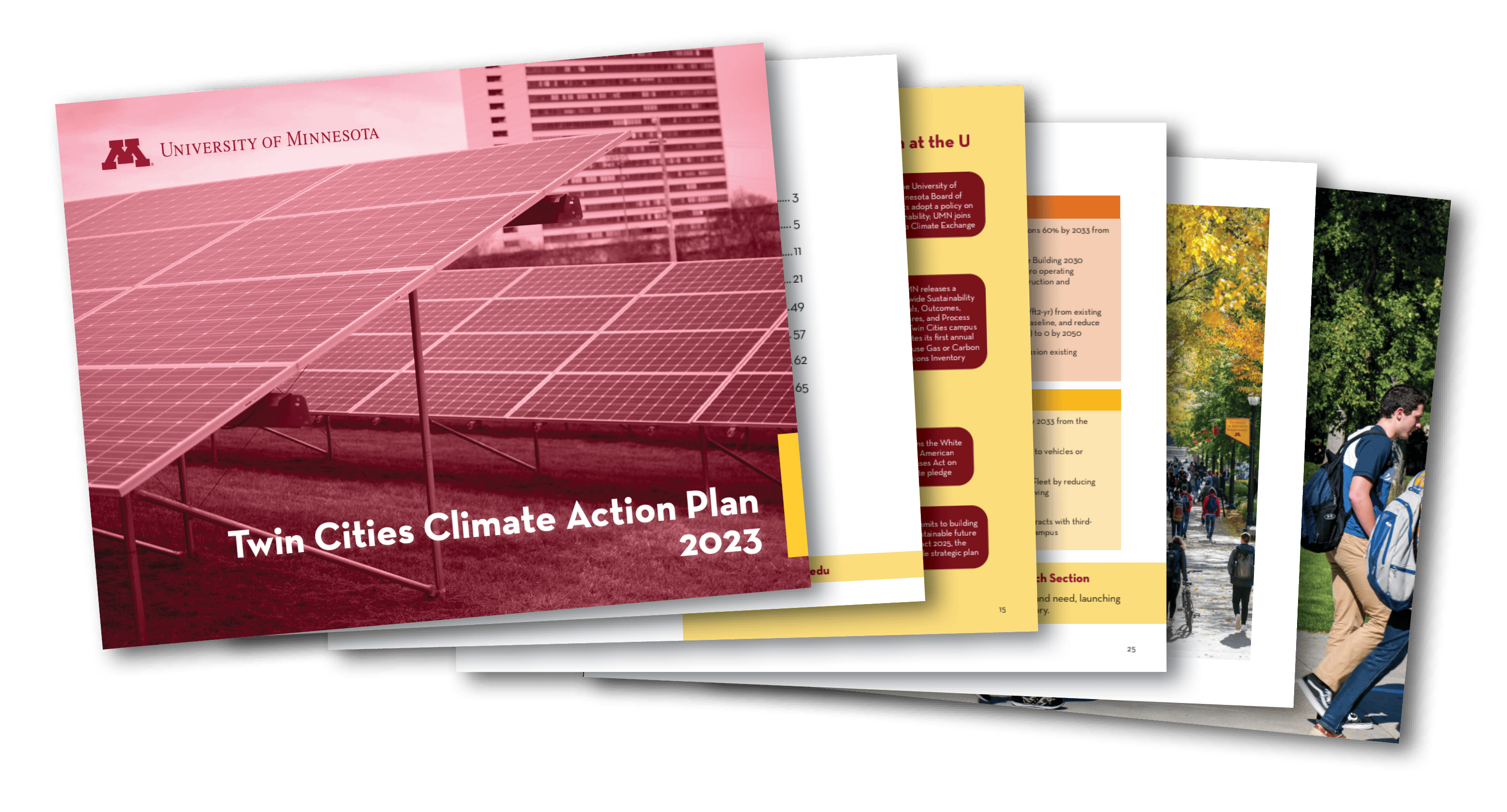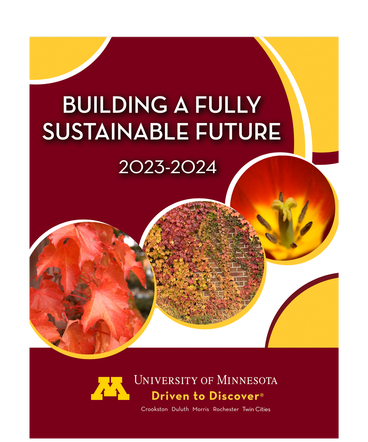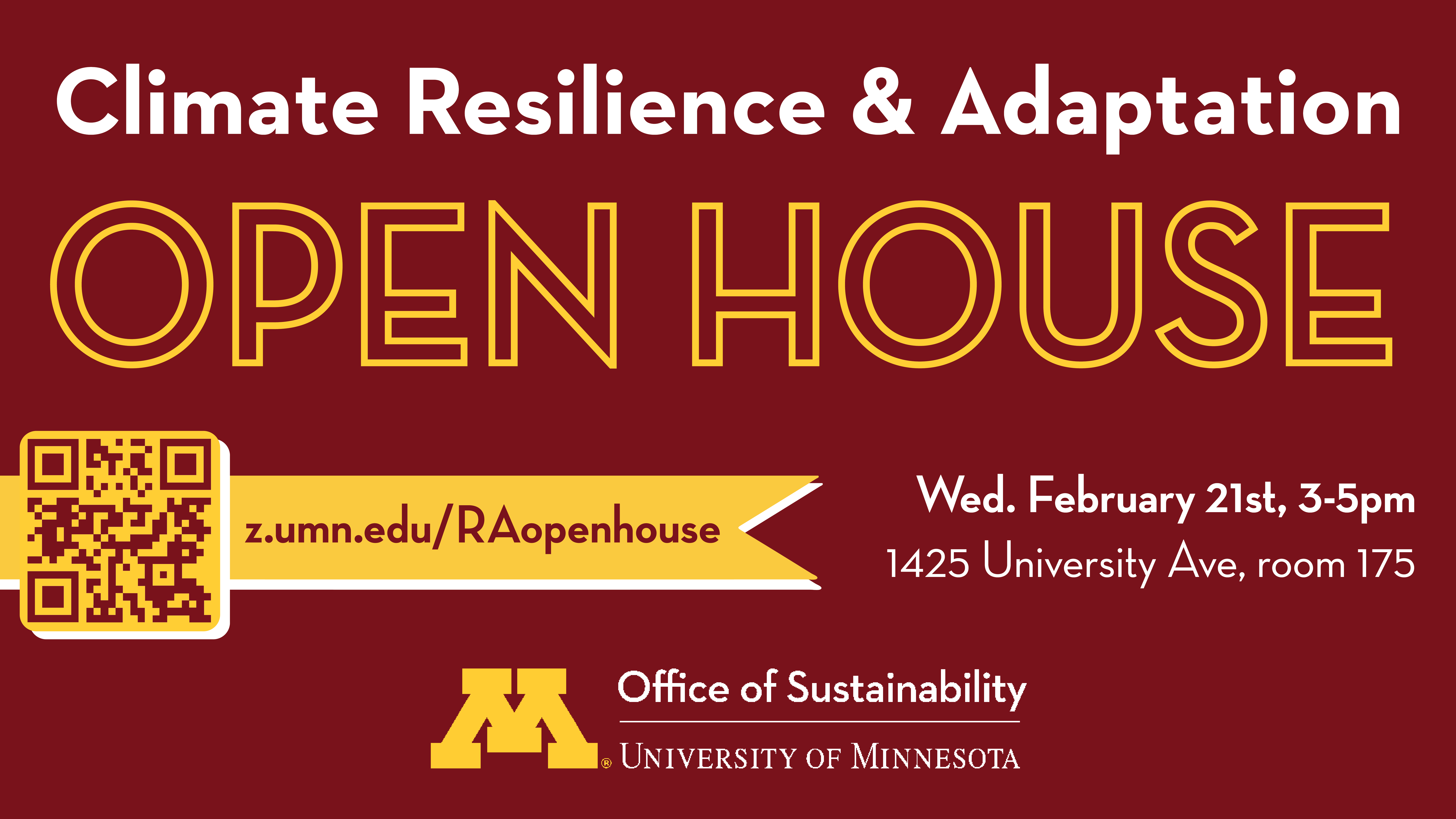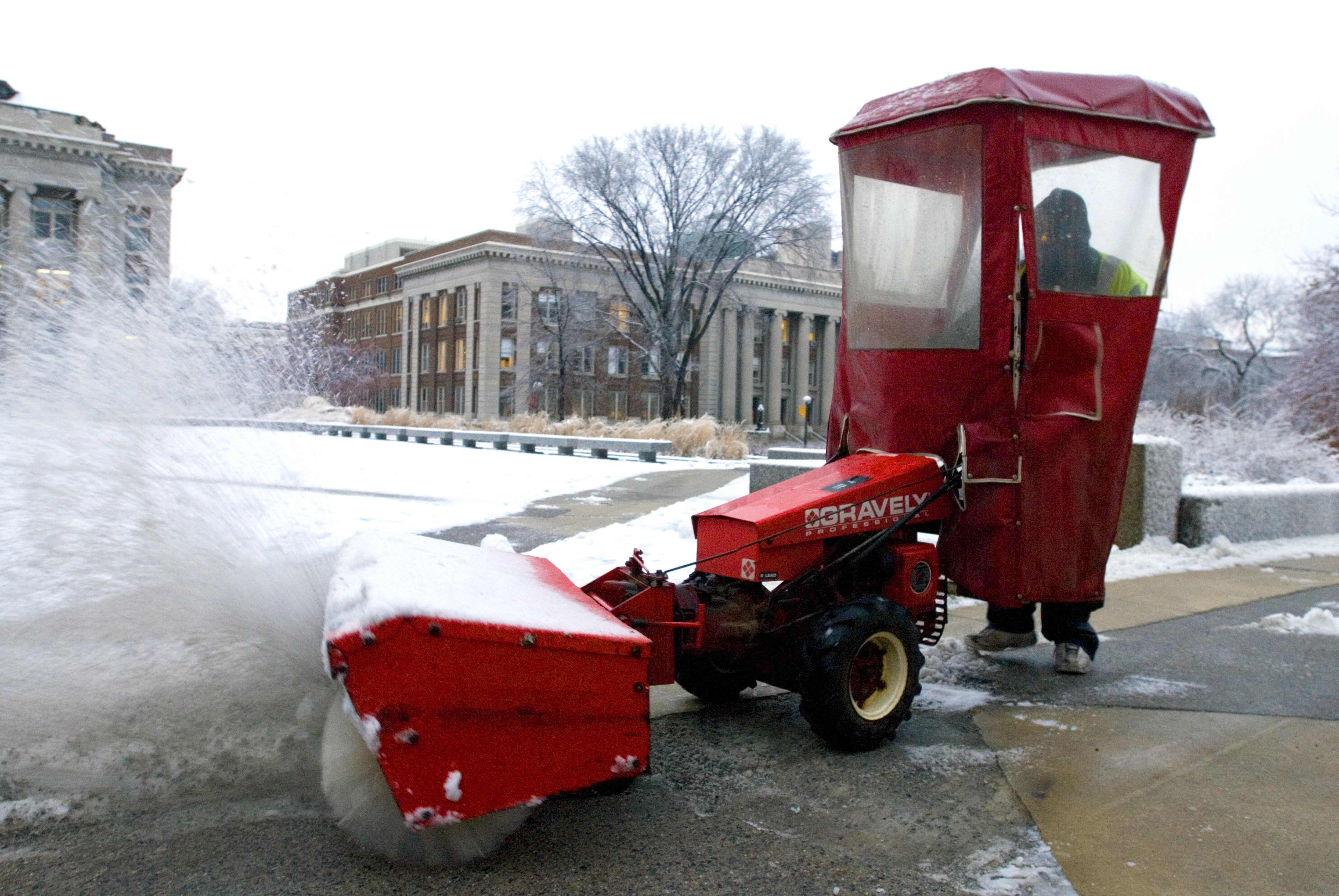
Facilities Management’s Landcare team is the primary snow removal service provider for the University of Minnesota Twin Cities campus, responsible for clearing nearly 100 miles of streets and walkways, and over 100 acres of parking surfaces. Landcare added anti-icing to the University’s winter maintenance program in 2006, which led to notable cost savings and reduced environmental impact. Landcare staff complete Smart Salting training through the Minnesota Pollution Control Agency, and in all operations, the Landcare team works hard to balance the importance of public safety with thoughtful stewardship of natural and constructed resources on our beautiful campus.
So, how do they do it? Before a forecasted snowfall, Landcare sprays salt brine anti-icing agent on roads and sidewalks. The brine solution prevents ice layers from forming and bonding with the surface of the roads and sidewalks, making removal of accumulated snow easier and more efficient, and reducing the need for additional salt applications. The use of anti-icing solutions allows the University to cut salt and sand use by several hundred tons per year, thus saving thousands of dollars, improving air quality, decreasing silt build-up, and reducing harmful runoff to stormwater systems and receiving water bodies.
If you see white lines on roads or sidewalks on campus, you know that the surface has likely been pretreated by Landcare. As always, be sure to practice safe winter habits, Gophers!
